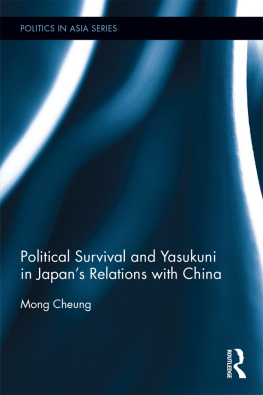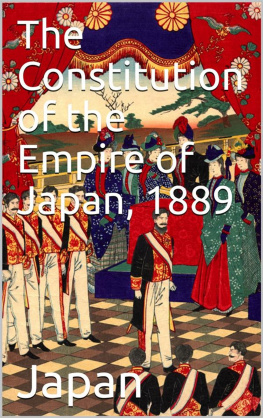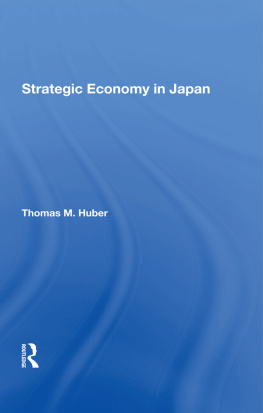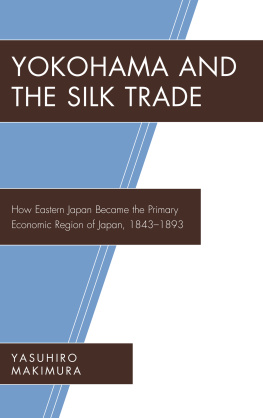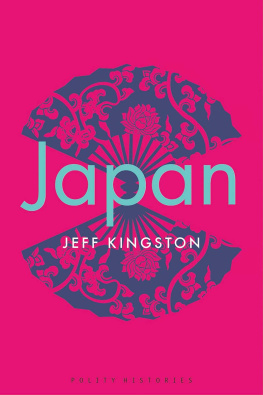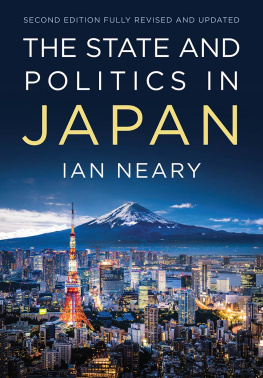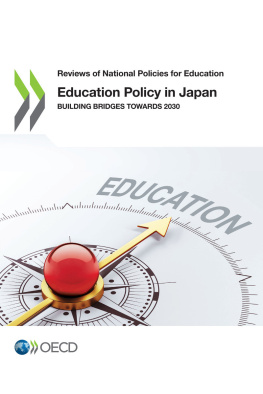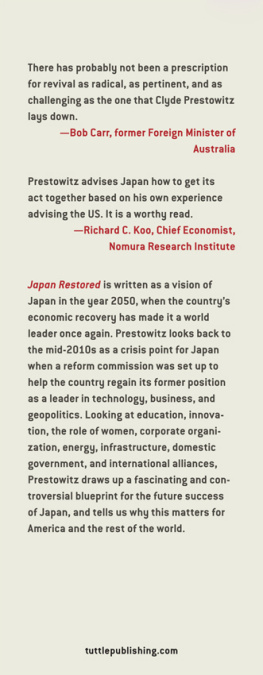First published 2002 by RoutledgeCurzon
Published 2019 by Routledge
2 Park Square, Milton Park, Abingdon, Oxon 0X14 4RN
52 Vanderbilt Avenue, New York, NY 10017
Routledge is an imprint of the Taylor & Francis Group, an informa business
Copyright 2002 Lesley Connors
All rights reserved. No part of this book may be reprinted or reproduced or utilised in any form or by any electronic, mechanical, or other means, now known or hereafter invented, including photocopying and recording, or in any information storage or retrieval system, without permission in writing from the publishers.
Notice:
Product or corporate names may be trademarks or registered trademarks, and are used only for identification and explanation without intent to infringe.
British Library Cataloguing in Publication Data
A catalogue record for this book is available from the British Library
Library of Congress Cataloguing in Publication Data
A catalogue record for this book has been requested
Typeset in Photina by Keystroke
Jacaranda Lodge, Wolverhampton
ISBN 13: 978-1-138-86283-8 (pbk)
ISBN 13: 978-0-7007-1633-3 (hbk)
As we stand at this watershed with the twentieth century behind us, the time is ripe to reflect on what has past, and to consolidate our vision for the future.
We face a particularly uncertain and potentially unstable period, not only in Japan but also in the the rest of the world. One reason for the uncertainty is the turnover in international leaders. There are new leaders in Russia, Korea and Taiwan. The United States inaugurated a new president on 21 January 2001 and Chinese Premier Jiang Zemins term of office will end in 2002. At the same time, the revolution in IT, breakthroughs in the study of space and developments in DNA research are all likely to have a hitherto unforeseen impact on the philosophy of mankind.
The reality in Japan meanwhile is that the political parties are preoccupied with securing power or increasing their strength, whilst the government is tied up in extensive reforms of the central administrative structure and is therefore distracted from policy formation and promotion. Neither is prepared to respond to the historical structural and cultural changes that are taking place across the world at the start of the twenty-first century.
That is why I have written this book.
Two things in particular troubled me. They were the systematic lack of either fundamental, mid- to long-term policies or a comprehensive strategy for realising them.
First, the Japanese Government is largely dependent on reports from the Ministry of Foreign Affairs, the Defence Agency and the Ministry of Economy and Trade and Industry (or its affiliate the Japan External Trade Organisation JETRO) for its international information gathering. Furthermore, these reports are submitted only to the respective governing ministries and there is no system in place to enable the Prime Ministers Office to utilise and integrate the ministries, think tanks and private sector organisations, such as trading houses. The US and Russia have organisations such as the CIA and FSB, and countries like the UK and Israel also have long-established and well-known, information- gathering organisations.
Japans historical legacy has left it heavily dependent on the United States for its information. Despite the recent launch of a Japanese multi-purpose satellite with reconnaissance capabilities, we are still dependent on the protection of the Security Treaty with the US and our strategic machinery for acquiring information and devising and realising mid- to long-term policy is weak. Given Japans commitment to a non-nuclear, defensive, light-arms policy, there is an overwhelming need for both information and strategy. From this standpoint, there is a pressing need to provide the arteries and capillaries of an efficient, compact network, capable of operating inside and outside the country, and to centre it on the Prime Ministers Office.
Second, I am only too aware that Japanese universities and private research facilities are not up to the task of nurturing the necessary talent to achieve this goal. Universities in other countries are blessed with faculties and graduate schools that study national policy and strategy, and educate suitable personnel. The Kennedy School at Harvard University is only one example of the many faculties and departments in US universities that fulfil that function. There are no such schools in Japan.
Japanese universities have a long history of anti-establishment attitudes and of taking pride in their ivory-tower status. They even neglect the debate on agricultural or industrial policy on the grounds that these are not mainstream academic issues. Needless to say, the idea of treating comprehensive policy or strategy as the object of academic research ran contrary to their sense of academism, and failed to gain legitimacy for that reason. This failure was largely due to the strong influence exercised over education by Marxism since the Taisho Period. Any learning or education that might be of use to the nation or the authorities was rejected.
This tendency has been somewhat ameliorated since the beginning of the 1990s when the USSR collapsed and socialism declined, but university departments and graduate schools are, as yet, unable to grapple squarely with these issues. Recently the National Graduate Institute for Policy Studies (GRIPS) was finally created and all universities, national, public and private, have been carrying out extensive reorganisation of their natural science departments and establishing new ones. In the social sciences, however, the achievements so far, are insignificant.
Private research institutions are also weak in comparison with those in other countries. Corporations create most of the private research institutes in Japan, the majority of which are economic and financial research institutions that serve the purposes of those corporations.
NIRA (National Institute for Research Advancement) and the Asian Economy Research Institute (integrated into JETRO in 1998) were created as national research institutes but, under the influence of their bureaucratic masters, they fail to fulfil this function and produce only run-of-the-mill studies.
This book is intended as a public appeal. With the twenty-first century now unfolding, there is an urgent need for independent, self-reliant plans for national policy and strategy to be drawn up by the public and private sectors, for advantage to be taken of the current central government restructuring and reform of the universities to re-examine our previous ideas, and for an acceleration of the necessary reforms.
When we think of national policy and strategy, certain individuals from the past stand out: Machiavelli in the field of politics, Klausevitz in the field of war, Mahon in the field of naval affairs and Kissinger in the field of diplomacy. Sakuma Shzan, Sakamoto Ryma and kubo Toshimichi come to mind as modern Japanese examples of great men. As we stand at this watershed now, we have an urgent need for two things. The first is to turn out people with talent that can match these historical examples. The second is to reform the organisational structure of the nation.
Finally, I would like to express my heartfelt gratitude to Yoshino Takao and Nakazawa Naoki of the PHP Research Institute, and to Tanaka Shigeru and Tomizawa Yasuji from my office for their cooperation and help.
Nakasone Yasuhiro
June 2001



